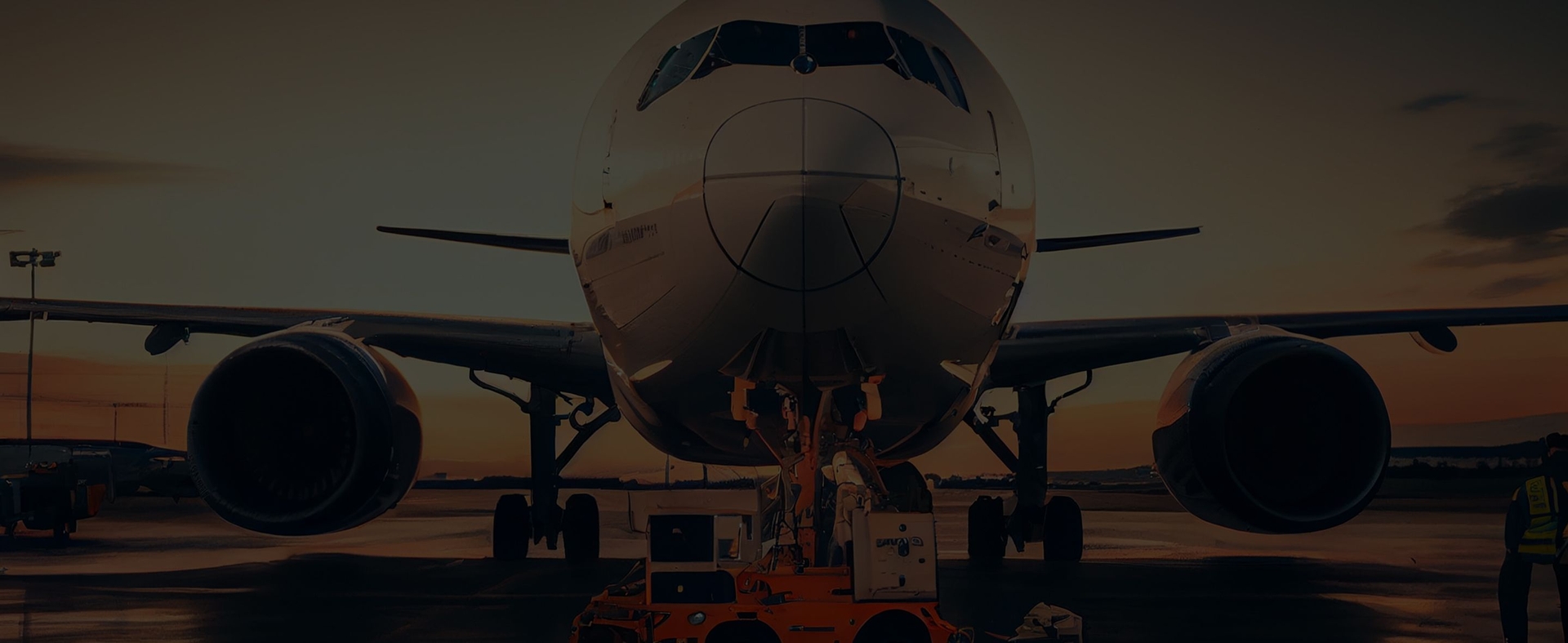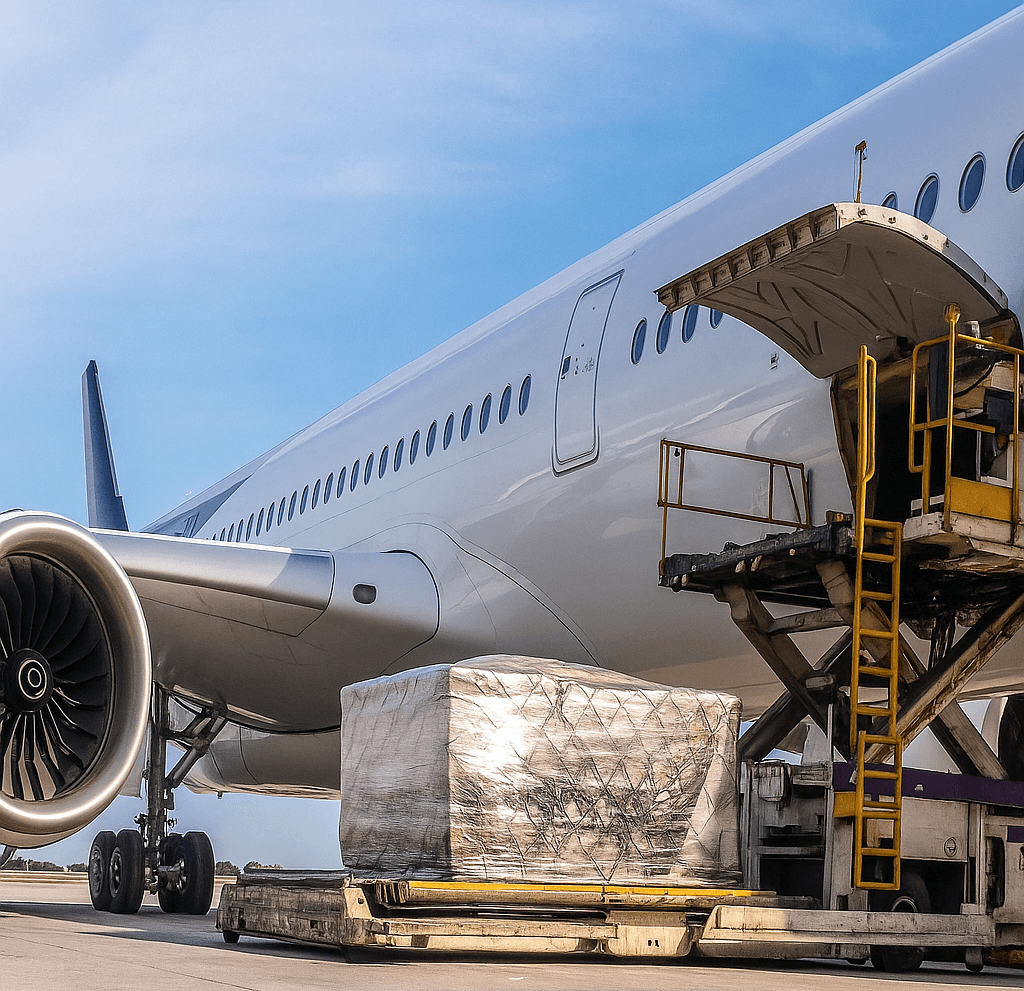
Air Freight Shipping from/to South Korea
Quote, Book & Track Your Air Freight With Our Online Platform
- Compare Thousands of Quotes from Multiple Carriers
- Trusted by 10,000+ Customers
- 40,000+ Tradelanes Covered Globally



Air freight is the fastest way to move goods between South Korea and global markets, especially for time-sensitive, high-value, or regulated cargo. With major air cargo flows linked to semiconductors and electronics, automotive parts, industrial machinery, pharmaceuticals, and e-commerce shipments, South Korea relies on predictable capacity and efficient customs processes.
Air freight from/to South Korea is commonly used when speed, reliability, and tight delivery windows matter. Pricing is typically based on chargeable weight (the higher of actual vs. volumetric weight). You can estimate costs using the Air Freight Calculator, validate shipment dimensions with the Cubic Meter Calculator, and check lane-specific lead times using the Transit Time Calculator. Before booking, confirm responsibilities and cost splits using Incoterms.
Standard documentation usually includes an Air Waybill (AWB), Commercial Invoice, and Packing List. Certain regulated categories may require additional permits or clearances depending on product type and direction of shipment. If cargo is restricted (for example batteries, aerosols, chemicals, or regulated pharma), it may require classification under IATA Dangerous Goods Regulations (DGR), review the Beginner’s Guide to IATA Regulations before tendering cargo.
iContainers lets you compare routes, book air freight online, and manage documentation in one place, helping you ship to and from South Korea faster, with transparent pricing and expert customs support.
Get an Air Freight Quote from/to South Korea
Instant Online Rates
Get real-time quotes for air freight shipments to and from South Korea with just a few clicks. Compare multiple airlines and routes, and book the most convenient option instantly through our digital platform. If you’re still validating weight vs. volume, run a quick scenario in the Freight Cost Calculator and confirm dimensions with the Cubic Meter Calculator before booking.
How to Book Air Freight with iContainers
- Request your online quote.
- Select your preferred route and airline.
- Upload shipment details and required documents (use our Air Freight Shipping Documents checklist if you’re missing anything).
- Confirm and pay securely online.
Customs Clearance and Tracking Support
We support air freight customs clearance in South Korea and destination countries. From customs processes to product-dependent compliance documentation for regulated categories, our team helps you stay compliant and reduce clearance delays. For smoother processing, ensure your AWB, commercial invoice, and packing list match shipment contents and values, and review common requirements in Customs Clearance & Duties. You also get end-to-end shipment tracking for complete visibility.
Air Freight Services from/to South Korea
Shipping Large Cargo and Pallets (LCL by Air)
Key South Korean exports shipped by air include:
- Semiconductors and electronic components
- Automobiles and auto parts
- Pharmaceuticals and medical devices
- Machinery and industrial equipment
- Cosmetics and consumer goods
- Fresh seafood and agricultural products
Air Express
If your shipment to/from South Korea requires urgent delivery, our air express service is ideal for small parcels, documents, and time-critical shipments with priority handling via hubs like Incheon (ICN), Seoul area gateways, and Busan (PUS). For heavier cargo and pallets, standard air freight typically offers better cost efficiency—see Air Freight vs Air Express to choose the right service by size, urgency, and customs complexity.
Typical Transit Times for Air Freight South Korea Routes
These are typical transit ranges and can vary by flight frequency, cut-off times, capacity constraints, customs processing, and any additional screening required for restricted cargo. For lane-specific estimates by season, use the Transit Time Calculator.
- Incheon (ICN) → Frankfurt: ~2–3 business days
- Incheon (ICN) → New York: ~3–4 business days
- Incheon (ICN) → Dubai: ~2–3 business days
- Incheon (ICN) → Shanghai: <24 hours (hub-to-hub)
- Incheon (ICN) → London: ~2–3 business days
Main Airports in South Korea for Air Freight
- Incheon International Airport (ICN): South Korea’s main international cargo hub, handling semiconductors, machinery, and perishables.
- Gimhae International Airport (PUS, Busan): Regional hub serving southern industrial zones and electronics exports.
- Gimpo International Airport (GMP, Seoul): Secondary airport mainly for express and domestic cargo.
Air Freight Services
Understanding Air Freight from/to South Korea
What Is Air Freight?
Air freight is the transportation of goods by aircraft. It is faster and more secure than ocean freight, ideal for urgent or high-value cargo.
When to Choose Air Freight vs. Ocean Freight
- Choose air freight for time-sensitive, high-value, or perishable shipments (e.g., fresh produce, pharmaceuticals, wine).
- Choose ocean freight for bulk goods like soybeans, corn, or industrial equipment where cost efficiency is the priority.
Benefits of Air Freight for Businesses
- Speed: Access to global markets within days.
- Security: Reduced risk of theft or damage compared to other modes.
- Reliability: Predictable schedules with frequent departures.
Air Freight Costs from/to South Korea
Weight, Volume, and Cargo Type Factors
Air freight costs are based on chargeable weight (actual vs. volumetric). Use the Cubic Meter Calculator to validate volume, then estimate and compare options using the Air Freight Calculator or the Freight Cost Calculator. Semiconductors and electronics often require secure handling, while regulated products can trigger additional checks and documentation that affect total pricing.
Seasonal Price Fluctuations
South Korean export cycles affect rates:
- Electronics & semiconductors (Q3–Q4): Demand peaks before year-end holidays.
- Pharmaceuticals (year-round): Steady demand, high compliance.
- Cosmetics (seasonal peaks): Driven by regional demand in Asia.
- Seafood/agriculture (seasonal exports): Cold-chain logistics increase costs.
- Holiday season (Oct–Dec): Global capacity constraints raise rates.
Customs Duties, Surcharges, and Local Fees
In addition to freight charges, shipments may include:
- Duties and VAT under Korea Customs Service (KCS).
- Health and sanitary inspection fees from MFDS and APQA.
- Handling and airport security charges.
- Aviation fuel surcharges.
Documentation & Packaging Requirements
Documents Checklist for Air Freight from/to South Korea
Always required (most shipments):
- Air Waybill (AWB)
- Commercial Invoice
- Packing List
Often required (product-dependent):
- Import/export declarations and local customs documentation
- Certificates of origin (trade agreement–based or buyer requested)
- Permits/licenses for regulated categories (where applicable)
- ISPM-15 compliance for wooden packaging and pallets (where applicable)
- IATA Dangerous Goods (DGR) documentation for restricted cargo (when applicable)
For a full overview of documents commonly required for air shipments, see Air Freight Shipping Documents.
Air Waybill and Commercial Invoice
Every shipment requires:
- Air Waybill (AWB): Transport contract between shipper and airline.
- Commercial Invoice: For customs clearance.
- Packing List: Cargo breakdown.
- Export Declarations (via KCS UNI-PASS system): For goods leaving South Korea.
- Sanitary/Phytosanitary Certificates: For food and agricultural products (issued by APQA).
Packaging Standards for Palletized Cargo
- ISPM-15 certified pallets.
- Refrigerated packaging for seafood and pharmaceuticals.
- Shrink-wrap, strapping, and clear labeling.
Prohibited and Restricted Items
South Korea follows IATA Dangerous Goods Regulations (DGR) for air cargo, along with national customs rules and product-specific controls. Restrictions are often product-dependent, so cargo classification and documentation should be confirmed before booking.
Prohibited (examples):Explosives, narcotics, undeclared dangerous goods.
Restricted / may require additional checks (examples):
- Batteries, aerosols, chemicals: may require DGR classification and airline acceptance under IATA rules.
- Pharmaceuticals and medical categories: may require permits or additional compliance documentation depending on product type.
- Sensitive or controlled items: may require additional customs declarations and clearance depending on category and destination.

Why Choose iContainers for Air Freight South Korea?
- Instant quotes and easy booking via our digital platform
- Coverage across major international airports and key South Korea air cargo hubs (ICN, PUS)
- Compliance support aligned with local customs documentation needs and IATA DGR rules for restricted cargo
- Shipment tracking from origin to destination
- Dedicated support team to guide you through documentation and regulations
Frequently Asked Questions about Air Freight from/to South Korea
Transit times typically range from 2 to 7 business days depending on route, flight availability, handling cut-offs, customs processing, and whether additional screening is required for restricted cargo. For lane-specific estimates, use the Transit Time Calculator.
Incheon (ICN) is the primary hub, with Busan (PUS) and Gimpo (GMP) serving regional and express shipments.
Air Waybill (AWB), Commercial Invoice, and Packing List are standard, plus product-dependent permits and declarations where applicable. For a more complete checklist, see Air Freight Shipping Documents.
Narcotics, explosives, counterfeit goods, hazardous waste, and restricted agricultural, pharmaceutical, or cultural heritage items under IATA and Korean law.